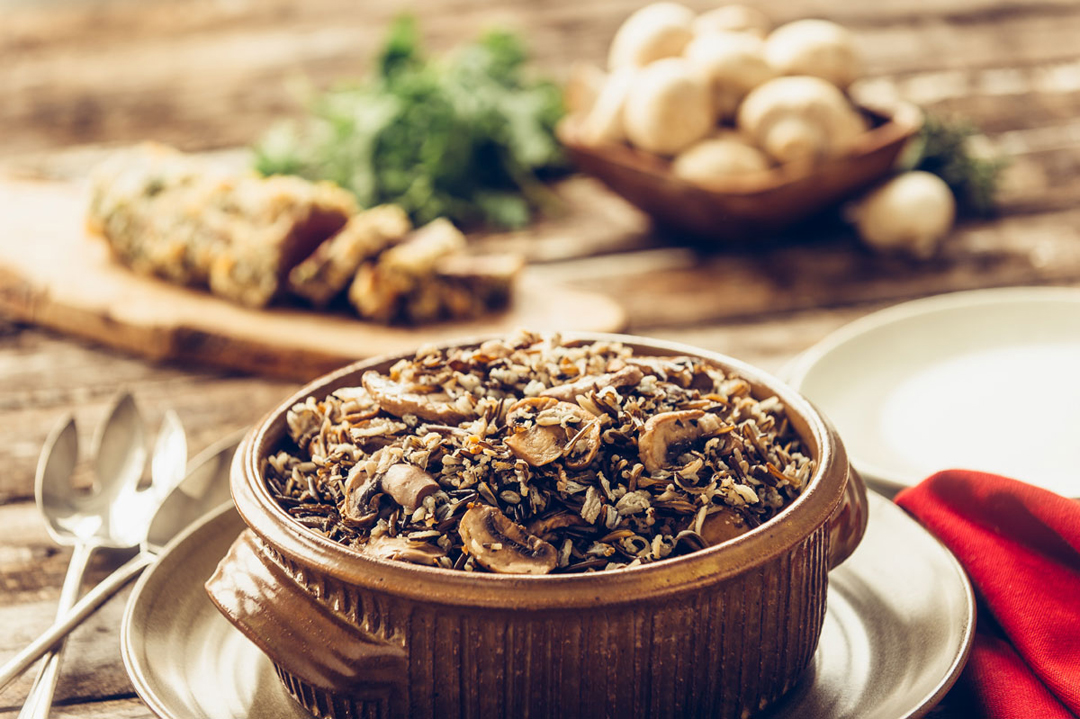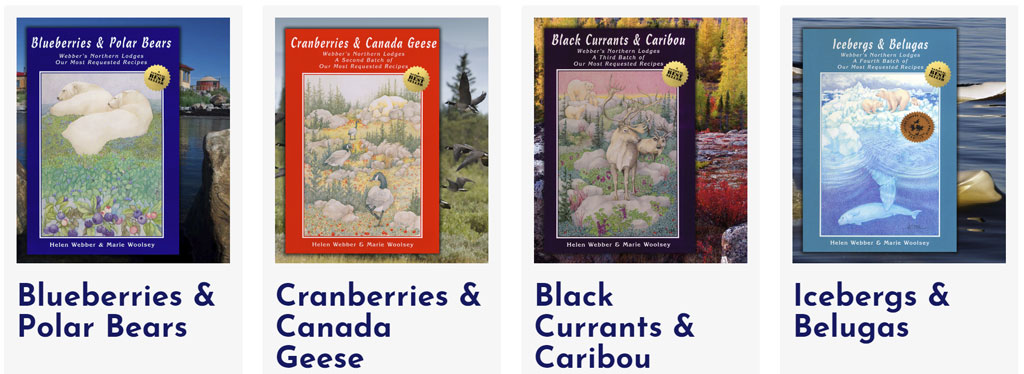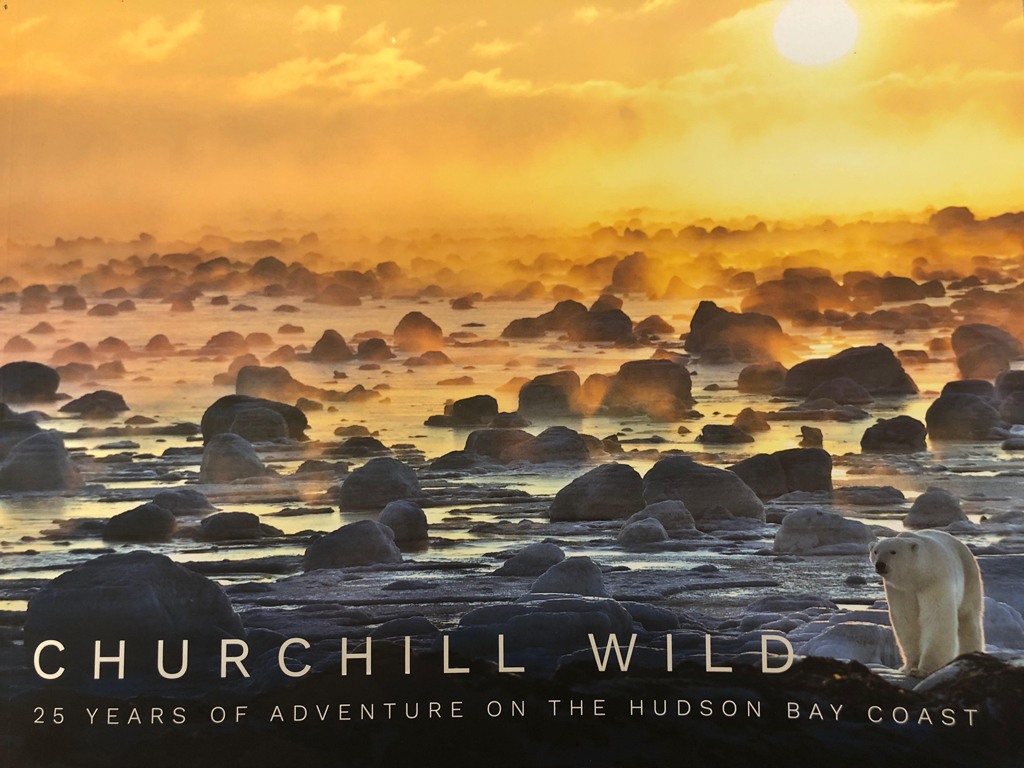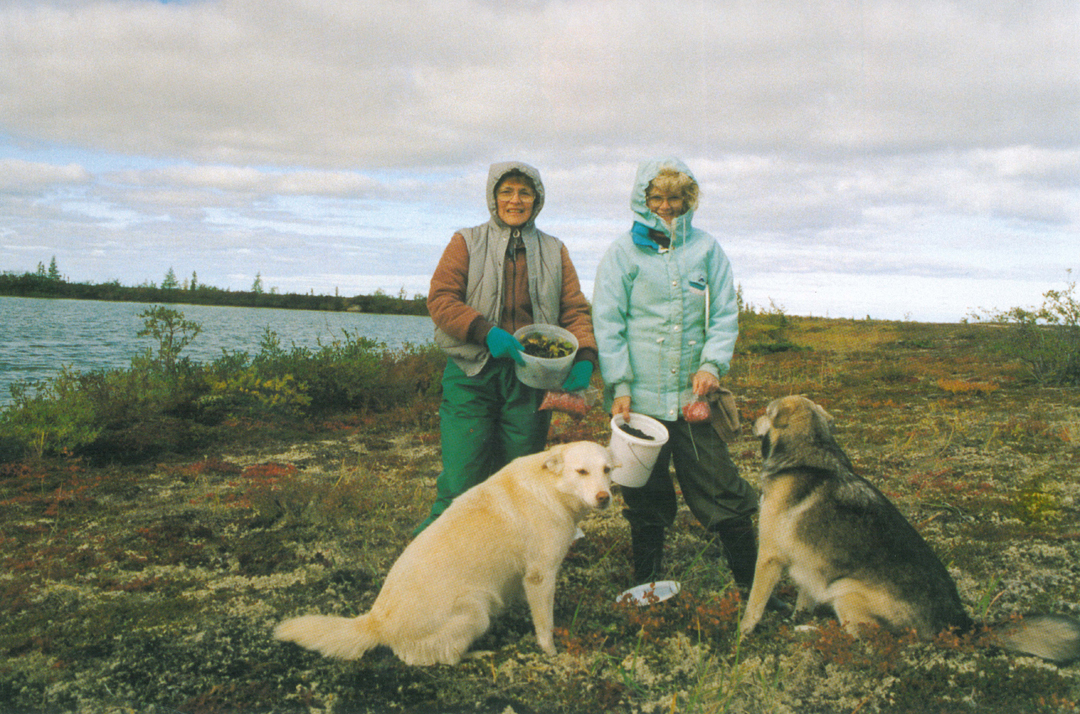
Blueberries & Polar Bears cookbook authors Marie Woolsey (left) and Helen Webber at Dymond Lake in the late 1970s.
by Vanessa Desorcy, Marketing Manager
“I had to fire my cook because he got drunk last night and was running through the halls naked. Can you come and take over?”
This was the offer put forth to Helen Webber by Bill Erickson, the manager of the Churchill Northern Studies Centre (CNSC), back in 1982. Bill knew Helen was an accomplished chef, and when he had to fire his head cook, her name naturally came to mind. Unfortunately, Helen was about to leave Churchill for North Knife Lake Lodge, so she had to decline, but the light went on for Bill when he remembered that Helen’s daughter, Jeanne, was already working in the office at CNSC. Thirty minutes later Helen received an urgent phone call from her daughter.
“Mom, can I have your recipe for spaghetti sauce?”
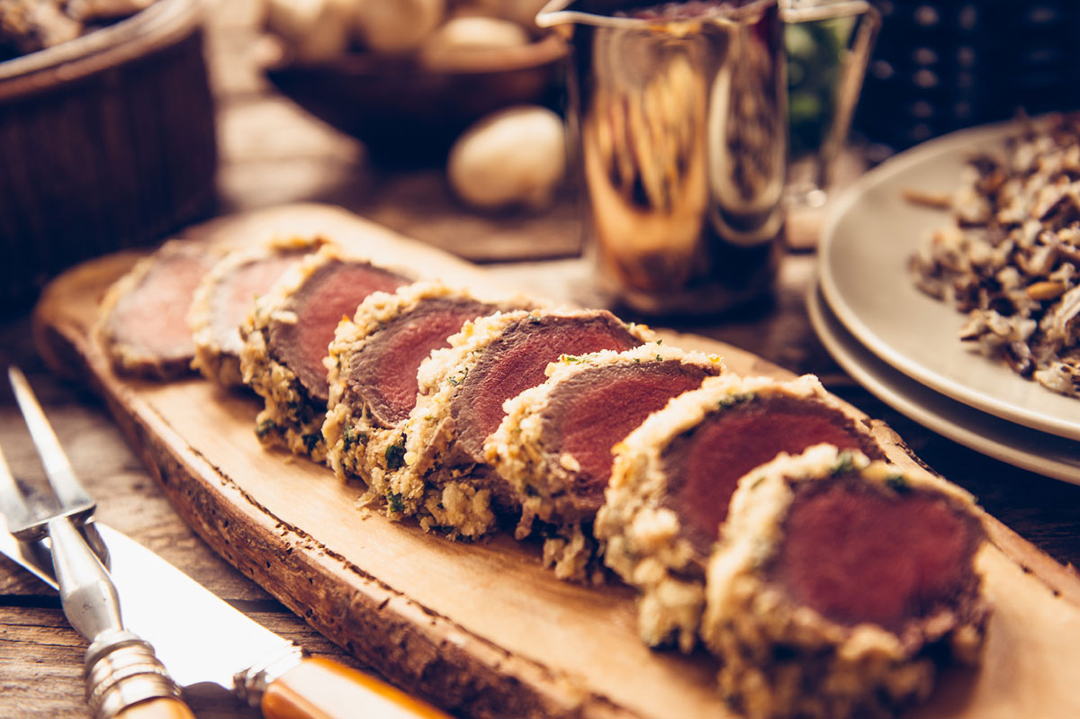
Crusted Caribou Tenderloin with Mushroom and Red Wine Reduction. Ian McCausland photo. Click image for recipe.
The culinary experience at our ecolodges garners rave reviews from guests, and the story behind it goes back more than 50 years.
Doug and Helen Webber were married in 1965, and Helen soon found herself in a new career as a homemaker with a growing family. In addition to raising her own children, Helen cared for several others and was actively involved in the community. She was a member of the Churchill Ladies Club, which organized monthly community dances, and three times a week she would volunteer her time to make clothes for local women.
As busy as she was, there was still one challenge Helen was intent on tackling: living up to the culinary reputation of her mother-in-law.
Doug’s mother was an accomplished cook and baker, so Doug assumed that when he married Helen she would provide him with the same types of meals and desserts he was accustomed to. When Helen realized her limited culinary skills were falling short, she sought out ways to rise to the challenge.
One of the fundraising functions of the Churchill Ladies Club was preparing and serving meals to members of the local Lions Club on a bi-weekly basis. As a result, Helen was able to develop her culinary repertoire and confidence. Helen also joined a mail-order cookbook club and, each week, she would experiment with a few new recipes.
A few years into their marriage, Doug and Helen partnered with Doug’s closest friend Bob Fortin to buy the original camp where Dymond Lake Ecolodge now stands. They suddenly found themselves responsible for feeding a group of hungry guests and Helen was thrust into the role of full-time chef.
In 1976, Helen met Marie Woolsey when Marie’s husband Gary, a minister, became the new rector at St. Paul’s Anglican Church in Churchill. Helen and Marie quickly discovered their shared love of cooking and baking. Later, when Gary was transferred out of Churchill, the two families stayed in touch. When Doug and Helen were building their fishing lodge on North Knife Lake in the late 1980s, Helen asked Marie to fly up and help her cook for the construction crew.
When Helen realized what a good team they made, she asked Marie to come back in the summer to help her cook for guests. Marie accepted and, while they didn’t know it at the time, this launched the next phase in our culinary story.
Meals were always a highlight at Doug and Helen’s lodges, and guests would often ask Helen for her recipes. On one memorable trip, a regular guest named Irv Wilson– who Marie swears was more interested in the food on the table than the fish in the lake — suggested that Helen and Marie write a cookbook, insisting “I’m going to call you once a month until you write it!”
As loved and respected as Helen is, Marie recalls that Helen’s organizational skills at the time did not quite match her prowess in the kitchen, so it was Marie who was the driving force behind their first cookbook. Marie reached out to the publisher of her favourite cookbooks, the Best of Bridge series. She was given contact information for Margo Embury at Centax Books, and she remembers being terrified at the prospect of making the call.
“I can’t begin to tell you how nervous I was,” said Marie. “I knew my voice was shaking. This was a new venture for me, and I was honestly scared to death!”
If the buildup to that phone call didn’t scare her, the information Margo delivered certainly did. They would have to print a minimum of 5,000 books at a cost of $50,000. Marie was discouraged by this news, but the ever-optimistic Helen was sure they could come up with a down payment and pay off the rest in instalments as books were sold. So, at the respective ages of 47 and 52, Helen and Marie took a leap of faith into the world of cookbook publishing.
The name for their first book came to them one day while picking blueberries at Dymond Lake Ecolodge and simultaneously scanning the landscape for polar bears. It was too easy. The book would be named Blueberries & Polar Bears, and it would be filled with recipes tested and approved by guests, stories of life in the north, and have strong ties to the land in the form of a section dedicated to wild meat.
Helen and Marie showed up at their first meeting with Margo in December of 1993, manuscript in hand and brimming with confidence. Turns out, there was just one small glitch. Apparently, Margo hadn’t committed to the project, she had simply agreed to hear their pitch. However, after seeing how much work they had already put into the book, Margo signed them on the spot.
Blueberries & Polar Bears would be Helen and Marie’s first of four full-length cookbooks, a collection that now includes Cranberries & Canada Geese, Black Currants & Caribou, Icebergs & Belugas) and five smaller Wild & Wonderful feature cookbooks highlighting the best of their blueberry, cranberry, fish, rice and game recipes.
Helen and Marie also developed the popular Dymond Lake Seasoning (DLS), their own unique blend of herbs and spices, to enhance the flavour of soups, stews, sauces, seafood, salads, vegetables, meats and all wild game.
The Blueberries & Polar Bears cookbooks represent the heart and soul of the food we serve at our lodges and if you’ve ever flipped through one, you know there is always a section dedicated to wild meat, with recipes such as Jalapeño Goose Breasts Suprême, Crusted Caribou Tenderloin and Moose Stroganoff.
As adept as our chefs are at preparing these dishes, there was a time when they were not a staple in Helen’s repertoire and wouldn’t have been considered for the cookbooks she and Marie would author. In fact, Helen was opposed to eating wild meat until she got tricked into tasting it not once, but three times.
In the early days of Doug and Helen’s marriage, Helen’s brother-in-law Gavin was given deer meat from a friend. He offered some of it to Doug, who accepted it and asked Helen to make it into hamburgers for dinner that night. Halfway through their meal Doug asked Helen what she thought of the meat. She enthusiastically replied that she was really enjoying it. Then, he dropped the bomb: “It’s not actually beef, Helen, it’s deer meat.” Helen put down her burger and refused to finish it.
A few months later Gavin offered Doug some moose meat, and once again Doug brought it home and asked Helen to make burgers with it. This time Doug waited until Helen was finished her meal before breaking the news. She wasn’t pleased.
Third time’s a charm? Doug must have been banking on this when he and Gavin devised a plan to serve Helen and her sister Louise deer meat under the guise of calling it lamb. When they’d finished their meal, the ingredients were once again disclosed to Helen, who threw her hands up in surrender. “I give up!”
Thankfully, Helen’s trials and tribulations with wild meat paved the way for future generations. Daughter Jeanne grew up viewing wild meat the same way she did domesticated beef, chicken and pork, and that mentality has been passed on to her children as well.
As much as Helen resisted wild meat when it was first introduced to her, the recipes developed around caribou, moose and goose are some of the most widely praised entrees in the Blueberries & Polar Bears cookbooks.
Read Part 2: The Next Generation of Arctic Chefs
This story originally appeared in our Churchill Wild 25th Anniversary Book, Churchill Wild — 25 Years of Adventure on the Hudson Bay Coast, which is now available online at McNally Robinson Booksellers and at our head office. There are also a limited number of copies available at our lodges from July through November, during our polar bear walking safaris. For more information please call 1.866.UGO.WILD (846.9453) or email info@churchillwild.com.

